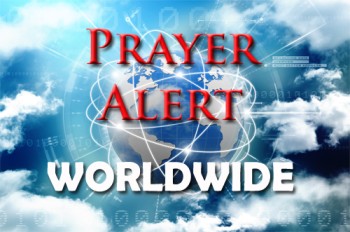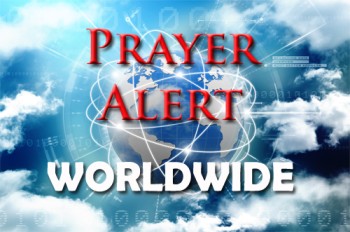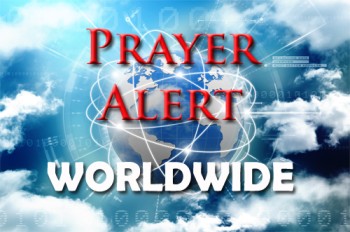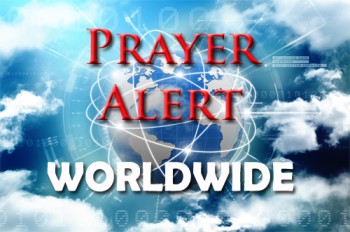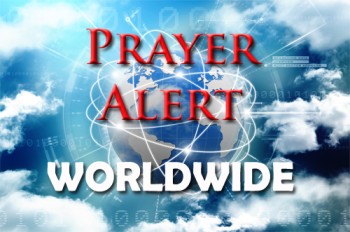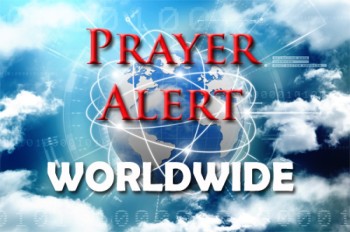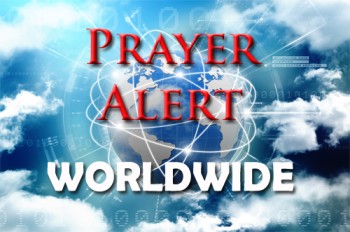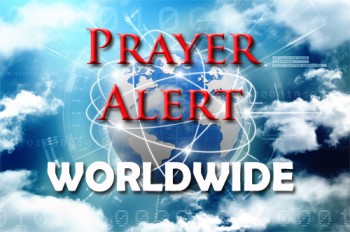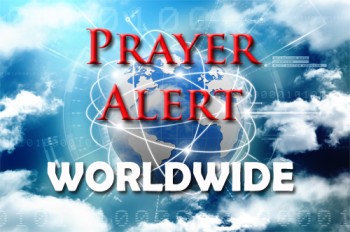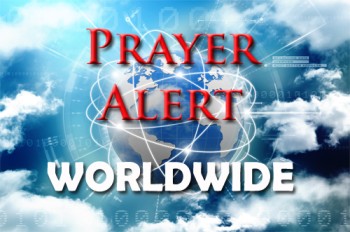Displaying items by tag: Middle East
Syria: rebel forces capture Aleppo, now targeting Hama
Buoyed by their lightning capture of Aleppo and swathes of northern Syria, rebel forces – led by Islamist factions – are now targeting the strategically important town of Hama. This offensive, ending four years of relative calm in the region, has already displaced nearly 50,000 people, with many fleeing nearby towns. Over 600 people, including 104 civilians, have been killed to date. Hama is a former stronghold of anti-Assad sentiment; its capture would ‘pose a threat to the regime's popular base’. The Syrian military say that sizeable reinforcements have arrived to bolster the defence of Hama, with Russian air support. Abandoned military equipment along roads highlights the intense clashes. As winter deepens the plight of displaced civilians, the renewed violence underscores Syria’s enduring humanitarian crisis, drawing international appeals for peace.
Israel: soldiers refusing to serve in Gaza
Yuval Green, a 26-year-old Israeli reservist and medic, answered the call to defend his country after the devastating Hamas attack in October 2023. Witnessing the aftermath in Gaza, he encountered unimaginable horrors, including civilian devastation and dehumanisation within his ranks. These experiences have led him and 165 other Israeli reservists to publicly refuse military service unless hostages held in Gaza are released and to call for a ceasefire. The refusal highlights growing dissent in Israel, where a poll shows 45% favour ending the war to recover the hostages, contrasting with 43% supporting continued conflict to eliminate Hamas. Diminished national unity and reports of burnout among troops exacerbate challenges. Yuval's decision came after orders he found morally indefensible, reflecting broader tensions within Israeli society about the war's direction and ethical concerns over military actions.
Lebanon: Israel / Hezbollah ceasefire comes into effect
A ceasefire between Israel and Hezbollah, brokered by the USA, began on 27 November, with thousands of displaced people cautiously returning to southern Lebanon. The truce calls for a sixty-day withdrawal period for Israeli forces and Hezbollah fighters from southern Lebanon, with the Lebanese army deploying extra troops in the region to oversee the ceasefire and reclaim control. However, Israeli officials have warned that any breaches by Hezbollah would prompt immediate military action. Hezbollah claimed ‘victory’ in its first statement since the ceasefire, vowing readiness to confront Israeli actions. The conflict, which began in October 2023 but has escalated since September, has devastated Lebanon, with over 3,800 killed and nearly 16,000 injured. Caretaker prime minister Najib Mikati has called for unity after what he said was the ‘most cruel phase in Lebanese history’. For a view on how this truce might affect the conflict in Gaza, see
Gaza: US says Israel has not violated its laws about blocking aid
The USA has stated that Israel has not violated laws regarding the blocking of aid to Gaza, even though a thirty-day deadline for increased humanitarian access has passed without full implementation. While acknowledging that Israel has made some progress, such as opening a new land crossing and resuming aid deliveries in northern Gaza, the USA says that further improvements are necessary. However, the UN reports that aid into Gaza is at its lowest level in a year, with the humanitarian situation growing increasingly dire, particularly in northern Gaza, where famine is imminent. The UN calls the ongoing Israeli blockade a violation of international law and a humanitarian crisis. Humanitarian groups report that conditions in Gaza have worsened, and aid is still being obstructed. Meanwhile, more people have died following further exchanges of airstrikes between Israel and Hezbollah: see
Israel: protests after Netanyahu dismisses popular defence minister
Benjamin Netanyahu has dismissed defence minister Yoav Gallant amid Israel’s ongoing conflicts with Gaza and Lebanon, citing a lack of trust. Gallant’s opposition to ultra-orthodox military conscription and his differing views on hostages have long put him at odds with Netanyahu: he had also publicly dismissed Netanyahu’s oft-repeated goal of ‘total victory’ over Hamas, saying that Israel’s military success had created the conditions for a diplomatic deal. His replacement, foreign minister Israel Katz, vowed to prioritise Israel’s security, emphasising the return of hostages and a decisive stance against Israel’s enemies. Gallant, seen as a moderate influence in Netanyahu’s coalition, was considered to be a stabilising figure. His dismissal sparked major protests across Israel, with citizens decrying the decision as a threat to national security. US officials expressed concern over the timing, especially in the middle of two wars. Meanwhile, on 7 November Israel allowed the evacuation of 231 seriously ill and injured patients from Gaza, the biggest since the conflict broke out. However, WHO said there were still up to 14,000 people waiting for evacuation for medical reasons.
Gaza: Israel’s decision to ban UNRWA widely criticised
The recent decision by the Israeli parliament to ban UNRWA from operating in Israel and Gaza has met with widespread condemnation. Israel has justified the decision by citing alleged links between some UNRWA staff and Hamas, but said it will continue cooperating with other UN agencies on humanitarian assistance for Palestinians. UNRWA has been labelled a terrorist organisation, and all official contact with the Israeli government has been blocked. This decision, opposed by the USA and other nations, raises concerns over worsening humanitarian conditions in Gaza, where more than 1.9 million have been displaced. A UNICEF spokesman has warned that without UNRWA, critical necessities such as food, water, and medicine could not be distributed effectively. That would likely cause the collapse of Gaza’s fragile humanitarian system.
Lebanon: churches respond to thousands of displaced people
Amid escalating violence between Hezbollah and Israel, thousands of families in southern Lebanon, including many Christians, have fled their homes. As they move north, local churches have opened their doors, providing shelter, food, and medical supplies. Church leaders have stressed their commitment to helping all affected, regardless of denomination, showing God's love through practical support. Despite the challenges and fear brought by Israeli airstrikes, Lebanese Christians see this as an opportunity to reflect Christ’s love. Leaders of the Kurdish Church and the Evangelical Presbyterian Church are among those leading relief efforts, with church members also welcoming families into their homes. SAT-7 continues to broadcast live, bringing messages of hope amid the chaos. As many as 200,000 people have been displaced, and church leaders ask for prayers for peace and strength during these difficult times. Breaking news: an Israeli airstrike on Beirut has killed at least 22 people.
Gaza: over 400,000 civilians trapped, says UN
As Israeli forces intensify their offensive centred on the Jabaliya refugee camp, over 400,000 civilians remain trapped in northern Gaza, according to the head of UNRWA. He expressed concerns about repeated evacuation orders and worsening humanitarian conditions, including hunger and the closure of key medical services. Israel's ongoing conflict with Hamas has led to widespread displacement, with hospitals forced to close and critical aid deliveries disrupted. The USA has called on Israel to urgently address the ‘catastrophic conditions’ in Gaza. Journalists and civilians continue to be casualties of the violence. Humanitarian groups have condemned the forced displacements, describing northern Gaza as turning into a ‘lifeless desert’ while southern regions struggle to cope with the influx of displaced people. There have been more than 42,000 Palestinian casualties since October 2023.
Lebanon: Israeli airstrikes alongside ground offensive
An Israeli airstrike on central Beirut, targeting a building connected to Hezbollah’s health unit, has killed at least six people and wounded seven more. On 28 September another airstrike on the city resulted in the death of Hezbollah's leader, Hassan Nasrallah, and Israel has now launched a ‘limited’ ground offensive in southern Lebanon against Hezbollah. The two forces are currently engaged in fierce combat, with casualties on both sides. Caretaker prime minister Najib Mikati has said that about 1.2 million Lebanese have been displaced by Israeli attacks. Meanwhile, on 1 October Iran launched 180 missiles against Jerusalem, with remarkably few casualties, and Yemen’s Houthis and armed groups in Iraq have launched attacks in the region in support of Hamas in its war with Israel in Gaza.
Israel / Hezbollah: conflict continues
Following extensive air strikes targeting Hezbollah, Lt Gen Herzi Halevi, Israel's military chief, has indicated that a ground invasion into Hezbollah-controlled territory in Lebanon might be imminent. The air strikes, which hit Hezbollah’s intelligence directorate and weapons stores, killed over fifty people, according to Lebanon's health minister. Hezbollah escalated the conflict by firing a missile toward Tel Aviv, the first such strike by the group on the city, which Israel intercepted. Cross-border fighting has continued, with Hezbollah launching more rockets and Israel responding with over 280 airstrikes on Hezbollah targets. Since Monday, more than six hundred people have been killed in Lebanon, and 90,000 have been displaced. There is no end in sight to the fighting, which is linked to Hezbollah’s support for Hamas in Gaza. Breaking news: Benjamin Netanyahu has flown to New York to address the UN General Assembly on 27 September. He has resolutely turned down the call by a number of countries for an immediate 21-day ceasefire. See
